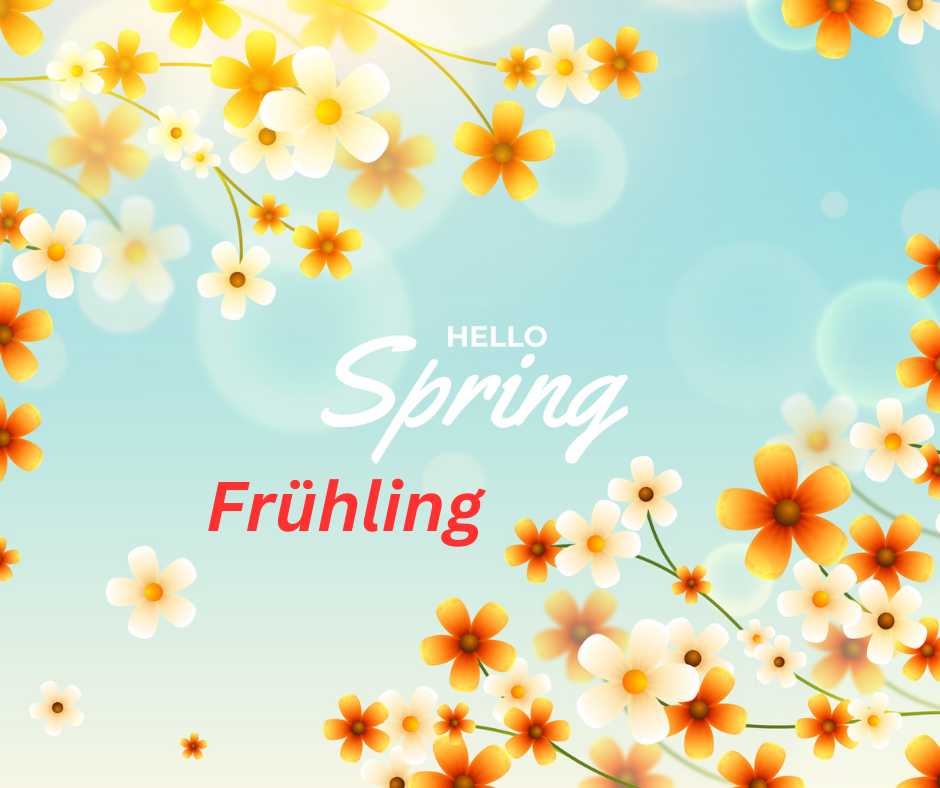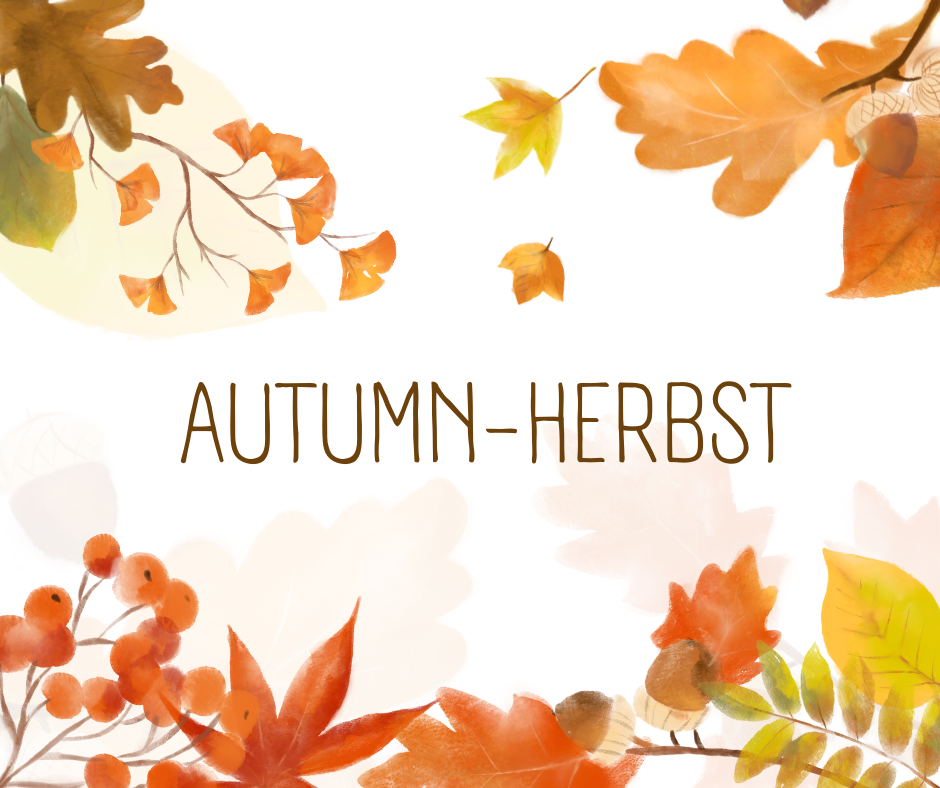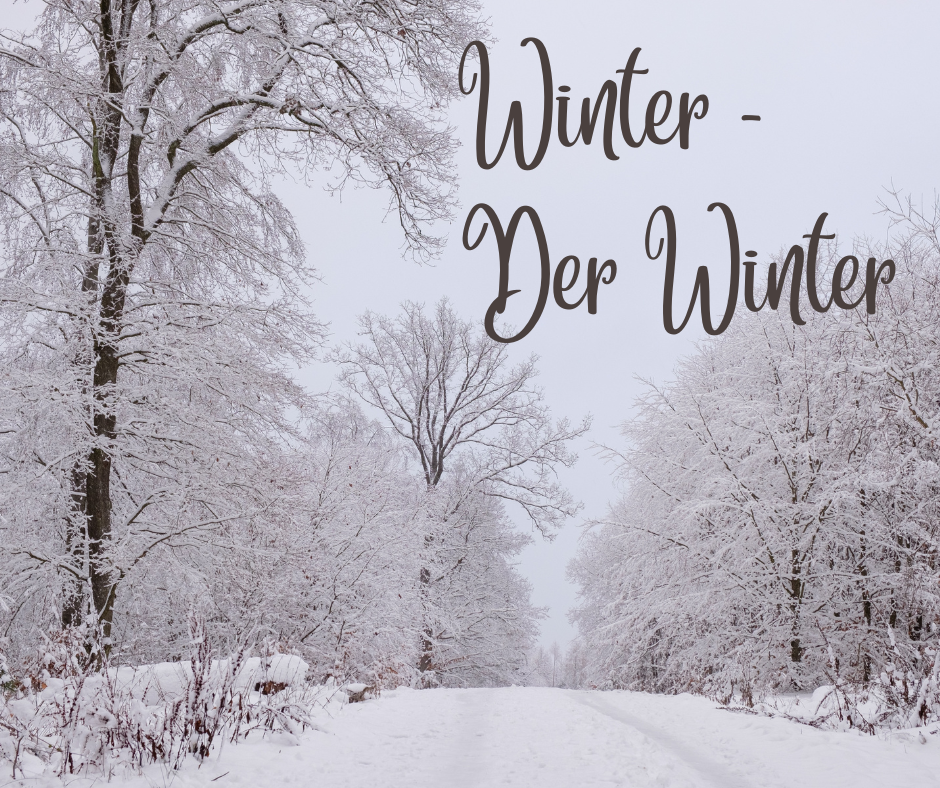Discovering how to express the seasons in German adds a new dimension to understanding the country’s cultural diversity. In this article, we understand the German language’s portrayal of the seasons, unveiling the distinct terms used to denote each phase of the year.
From the blossoming of spring to the frosty embrace of winter, each season is described in unique German words that convey the weather and the specialty of the time of year.
Understanding pronunciation and terminology is paramount to communicating the seasons in German effectively. In this article, we simplify the linguistic intricacies of each season, breaking down the pronunciation and usage.
Whether you’re conversing about the warmth of summer or the colors of autumn, grasping these essentials not only enhances language proficiency but also provides cultural insights that seamlessly blend into everyday
German Seasons and Their Pronunciation
When you learn to speak German, understanding the seasons becomes fundamental for basic and frequent conversations. Whether planning a trip, discussing your birthday, or meeting a friend, knowledge of days, months, and seasons is essential in German.
Firstly, it’s crucial to recognize that seasons in German are masculine nouns, and their article is always “der.” As the German year commences on January 1, the beginning of the year is characterized by chilly weather.
Here are the four seasons in German:
Frühling (Spring)

Spring, or “Frühling” in German, casts its magical spell across the country with its distinct characteristics. Officially spanning March, April, and May, this season unfolds with a subtle chill in March, bidding farewell to winter. As vibrant flowers paint the landscape with renewed hues, April emerges as a blossoming spectacle.
May, a favorite for leisurely exploration, beckons with pleasant weather, creating an inviting atmosphere for outdoor activities. Spring in Germany is not only marked by nature’s awakening but also by joyous festivities. Easter, celebrated in April, infuses tradition and merriment into the season, while May hosts the honoring of labor with Labor Day celebrations.
Sommer (Summer)

In Germany, the sunny season is lovingly known as “Sommer” or summer. Lasting from June to August, this is the time everyone looks forward to, and it’s no wonder why.
Tourists flock to Germany during these months, drawn by the promise of pleasant weather and cultural festivals.
Summer is for outdoor activities – from cycling and picnicking to festive events and open-air concerts. It’s a time of relaxation and leisure, where people unwind by lakesides, in the mountains, or on beaches.
Herbst (Autumn)

Autumn in Germany, known as “Herbst,” is marked by vibrant colors and cultural celebrations. Lasting from September to November, this season brings a world-famous festival to Munich called Oktoberfest.
The festivities, starting in late September and continuing into early November, draw people from around the globe. Oktoberfest is more than just a party; it’s a lively celebration of Bavarian culture with music, traditional clothing, and delicious German food and drinks.
In addition to Oktoberfest, Germany joins the global Halloween celebrations during this season, bringing a touch of spooky fun. The landscape becomes a canvas of warm red, orange, and gold hues as the air turns crisp. Nature’s beauty makes autumn perfect for contemplative strolls and cozy evenings indoors.
In Herbst, whether you’re enjoying the lively spirit of Oktoberfest, participating in Halloween festivities, or simply admiring the changing leaves, you’re invited to experience the unique and culturally rich charm of this season in Germany.
Der Winter (Winter)

Winter in Germany, or “der Winter,” brings a magical chill from December to February. During these months, the country transforms into a snowy wonderland. Despite the freezing temperatures, Germans love winter just as much as summer.
It’s a time of celebration with festivals that warm the cold days. Christmas, celebrated on December 25, fills the country with a festive spirit adorned with decorations and traditional markets.
Then comes New Year’s Day on January 1, welcomed with high spirits and hopeful resolutions.
Winter isn’t just about the cold; it’s about joyous activities. Germans embrace winter sports like skiing and ice skating, bringing an active vibe to the season.
As snowflakes paint the landscape, winter in Germany invites everyone to enjoy the unique charm and warmth that this season holds.
Spelling and Translation of Seasons in German
An intriguing fact about the German language is that seasons are written in capital letters.
While this may initially strike learners as unconventional, it synchronizes with German grammar principles, mandating the capitalization of all nouns.
It’s essential to note that in German, all seasons are given the masculine gender. This grammatical touch extends to spring and summer, adding a layer of formality to how time and weather are expressed in the language.
In German, you use the preposition “im” instead of “in” when discussing specific seasons in specific places. It sounds like “in dem” but is shortened.
Think of it like this:
“In” alone is more general. This doesn’t say where exactly you spend those holidays.
“Im” adds precision: This specifies where you are during that specific summer.
This is similar to English using “at” for specific times and places: “We arrived at the airport at 2 PM”.
So, remember:
“In” for general seasons
“Im” for specific seasons in specific places
There is no need to worry about the technical explanation of “in dem” being shortened. Focus on using “im” for that extra precision when discussing seasons in specific places!
Master the Pronunciation of German Season
Now, let’s begin pronouncing the seasons in German, a pursuit that requires a unique approach to pronounce it with native-like fluency. The elegance lies in the simplicity of these four seasons, where letters often mirror their phonetic counterparts.
Frühling” (Spring):
The distinctive character here is the letter “ü.” To emulate its unique sound, position your mouth as if forming an “o” but let it transition into a “u.” This subtle fusion creates the melodic resonance of “Frühling.”
“Sommer” (Summer):
Concerning “Sommer,” note the initial “S.” Unlike a deaf “S,” it resonates with a soft, sonorous quality akin to the gentle buzz of a mosquito, forming a seamless transition from “S” to “zzz.”
“Herbst” (Autumn):
As we encounter “Herbst,” note the elegance of the German “r” while maintaining a crisp “bst” ending. Allow the word to flow with the effortless charm that defines autumn.
“Winter” (Winter):
For “Winter,” notice the subtle shift in pronunciation. The German “W” adopts the sound of “v.” Hence, “Winter” transforms into “vintage,” adding a lyrical touch to the term.
Commit to consistent practice to enhance your grasp of German seasons until the words feel like old friends. Once you’ve mastered these foundational elements, consider them a launchpad for more advanced topics, such as navigating the intricate world of German irregular verbs.
This meticulous approach allows you to build a strong language foundation, making your journey into the deeper aspects of the German language both seamless and rewarding.
Takeaway
In summary, grasping the intricacies of German months and seasons, including their correct pronunciation, is a foundational step in language acquisition. The capitalization of nouns, consistent use of articles, and attention to unique vowel sounds are crucial features.
With this understanding, you pave the way for a smoother and more confident exploration of the German language. Consider these elements your building blocks, laying the groundwork for broader linguistic proficiency and more precise comprehension of this rich and fascinating language.


 February 20, 2024
February 20, 2024  7 Min
7 Min  No Comment
No Comment 



